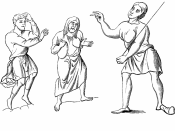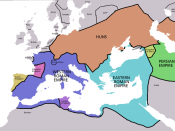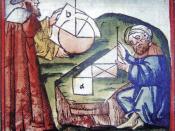Middle Ages marking transitional period in Europe The Middle Ages marked a transitional period in European political, social, and cultural history beginning from the fall of the Roman Empire. After the fall of Rome, urban and economic life decayed. After the centuries of chaos and disorder, a new political, social, and economic system emerged in which wealth, power, and social standing came from the ownership of land. All aspects concerning political, social, and cultural history changed drastically from what was the Roman Empire ways to which became later on the monarchial ways of Europe.
During the Middle Ages, politics began to change considerably from what politics were before the fall of Rome. First of all, throughout Europe new monarchs emerged.
Kings weren't elected. They held power simply for the bloodline they had. During the Middle Ages, politics were greatly influenced by the economy and warfare.
How much land a person owned literally meant how much power the person would have and therefore what offices that person could hold meaning how important his job for the king would be. Under feudalism, a lord gave his vassals land in return for specific duties. This has to do with politics because the lord controlled and ruled everyone that lived in his land. The main occupation of the medieval nobles was warfare. In the later Middle Ages, feudal warfare declined, and knights were supposed to conduct their lives according to the code of chivalry. Also Europe experienced a succession of invasions, which devastated Europe physically, mentally, and definitely economically which greatly influenced on how politics were done. More taxes were charged to support the warfare and later on to recover from it. This all mean harsher rulers which the people didn't like and rebelled against only ending in...


